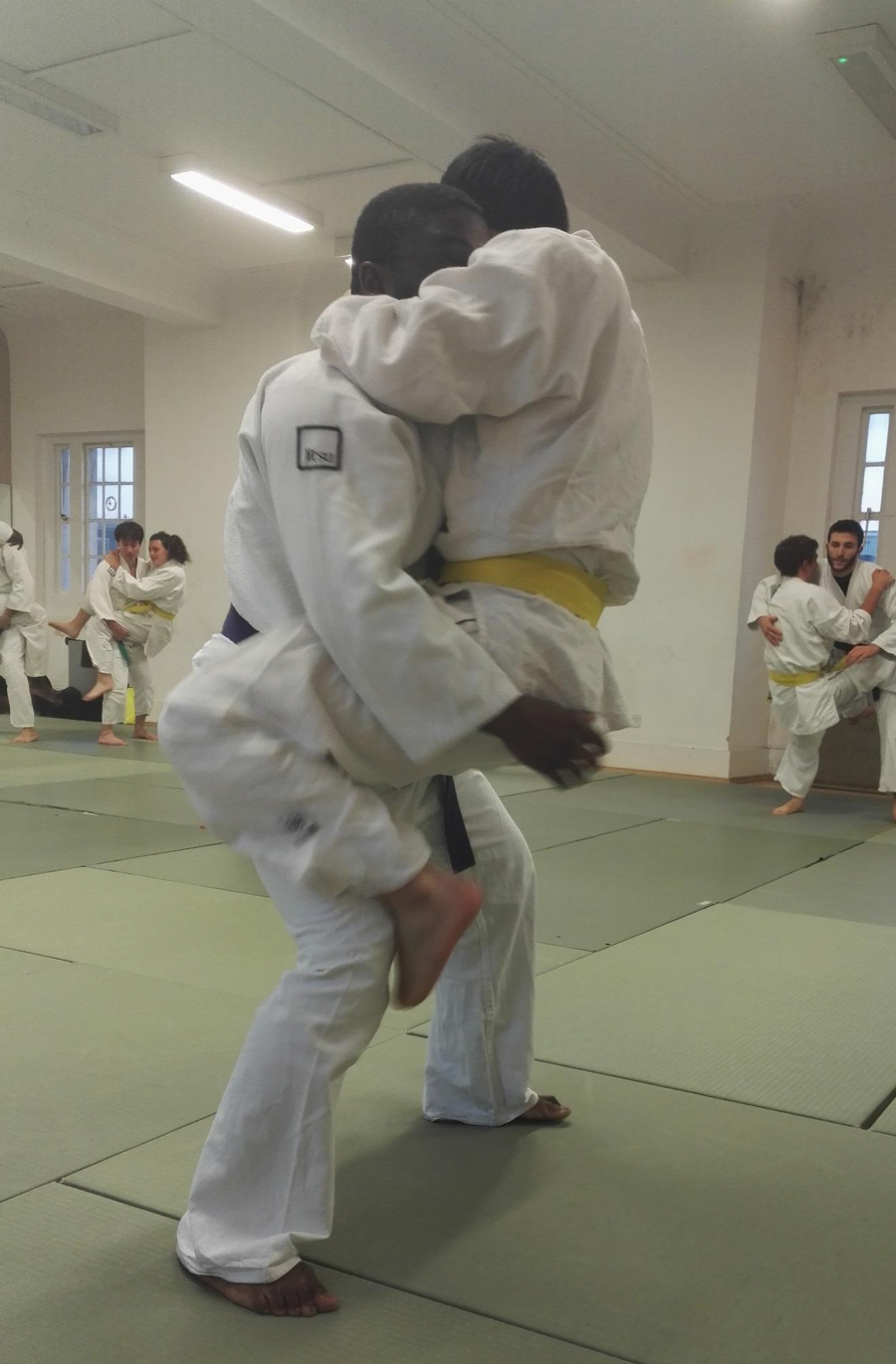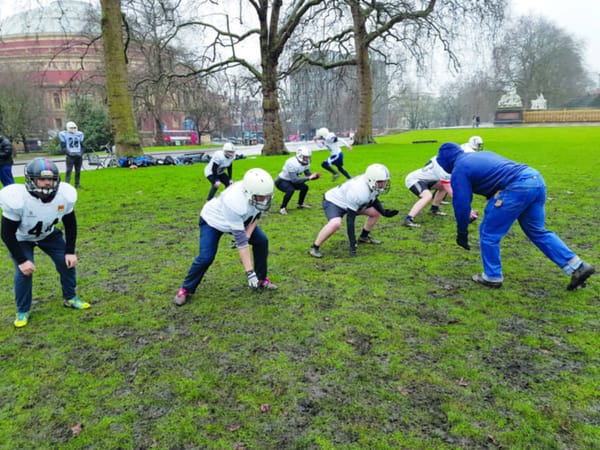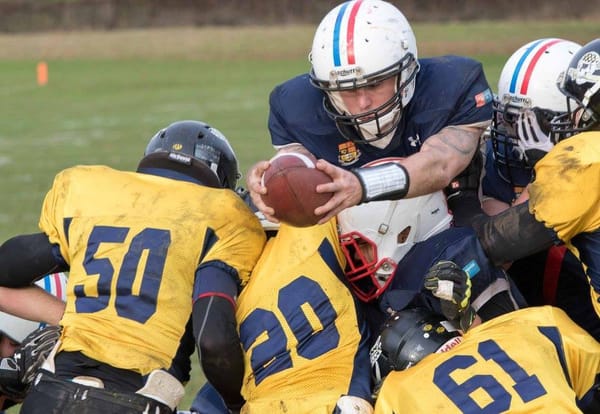Push them down, tire them out, win!
We swear it's not porn

Randori nationals are coming up, and Imperial Jiu Jitsu has to be prepared! This weekend an Imperial versus Queen Mary friendly, regional ground-fighting competition took place as practice for both clubs before nationals. Groundwork is a lot of fun, but very tiring when you’re the one stuck in a hold. It is very much like trying to escape a really, REALLY tight hug. Here, most competitors agreed not to use any chokes or strangles; let’s all play nice and friendly.
The session started with a warm up led by QM instructor Alex Macaulay, involving the usual running around: push ups, sit ups, squats and burpees, but also climbing over and around each other, because why not? Forget all notions of personal space once you start any kind of groundwork, the more up close and personal you get, the better. In fact, to keep your opponent pinned to the ground you have to put them in a hold they cannot escape, usually by putting all your weight on top of them (gets a bit more difficult to breath if you do that on their chest), or applying some kind of joint lock. As you go up the grades you can learn more techniques, holds, and locks such as the ones Imperial Jiu Jitsu affectionately nicknamed ‘69’ (officially ‘yoko shiho gatame’) or ‘the mount’ (officially ‘tate shiho gatame’, another mouthful) because, well…it becomes evident when you see them.
In this type of competition, fights can start from a sitting position or a standing position (officially for green belts and above). If starting from a sitting position, the two opponents are initially back to back, legs straight, feet together, and hands on their thighs. The fight starts when the referee says the word ‘hajime’ (Japanese for ‘begin’) and ends when one of the opponents pins their adversary’s back to the ground for 20 seconds, which is an awfully long time when the person underneath you is thrashing like crazy and trying to wiggle out of your hold. It can also end if one of the participants taps out (because they were in a joint lock or feel they can’t escape a hold) or if time runs out. The rounds here were two minutes per fight, plus one extra minute if there is no defined winner. If neither opponents managed to hold the other for 20 seconds or made them tap out, the winner is decided based on their pro-activity and control. The referee must say ‘yame’ (‘stop’) to officially cease any fight.
If starting from a standing position then the opponents are face to face and try to throw each other to the ground, ideally making both their adversary’s shoulders (the famous ‘ippon’) touch the ground, or at least one, with control from the tori (the one throwing) over the uke (the one on the receiving end), to declare a win. The referee judges if the throw was clean or if the round needs to be reset. Here rounds were also of roughly two to three minutes, and as before the winner is chosen based on their initiative and control if neither manage to throw the other. As rounds are very short, genders and grades were mixed during the competition so all could enjoy as many fights as they wanted and fight with everyone. The participants were still roughly separated by height/weight class, as it is still a very important parameter in groundwork: there’s not much you can do if somebody twice your size is sitting on your chest…maybe tickle them? Hit them in the- wait no, that’s not a legal move.
To finish on a nice and friendly note after all that rolling around on the tatami mats, Imperial Jiu Jitsu organised a great (and cheap) social in a fancy Korean restaurant in Soho. Eating as much Korean barbecue as you want, mostly paid for by the club. What more could you ask for? Imperial Jiu Jitsu is going to have more friendly regional competitions with other London universities before the big Randori Nationals at the end of February in Northampton, so watch this space! Jiu Jitsu is an amazing discipline open to all in which you can progress really quickly if you set yourself to train regularly, and you’re constantly supported by your peers and instructors who want to help you learn and get the best out of every training session.









